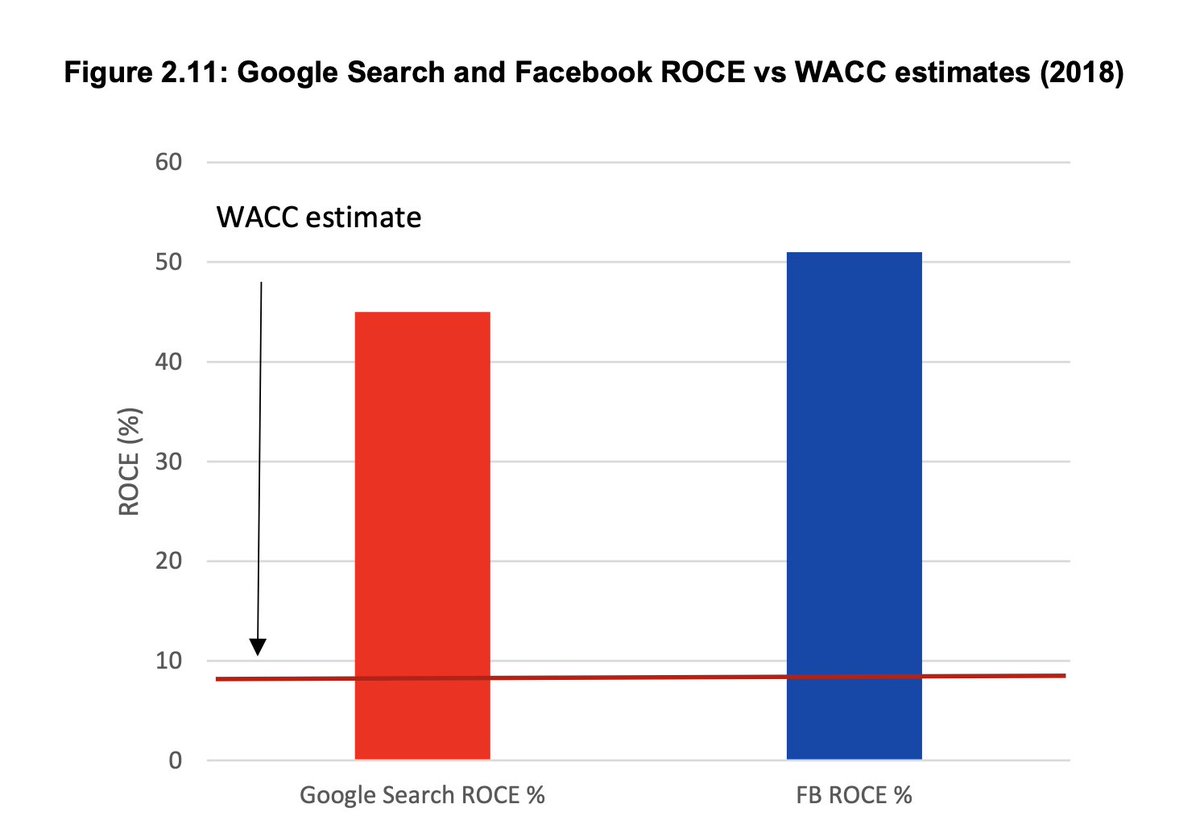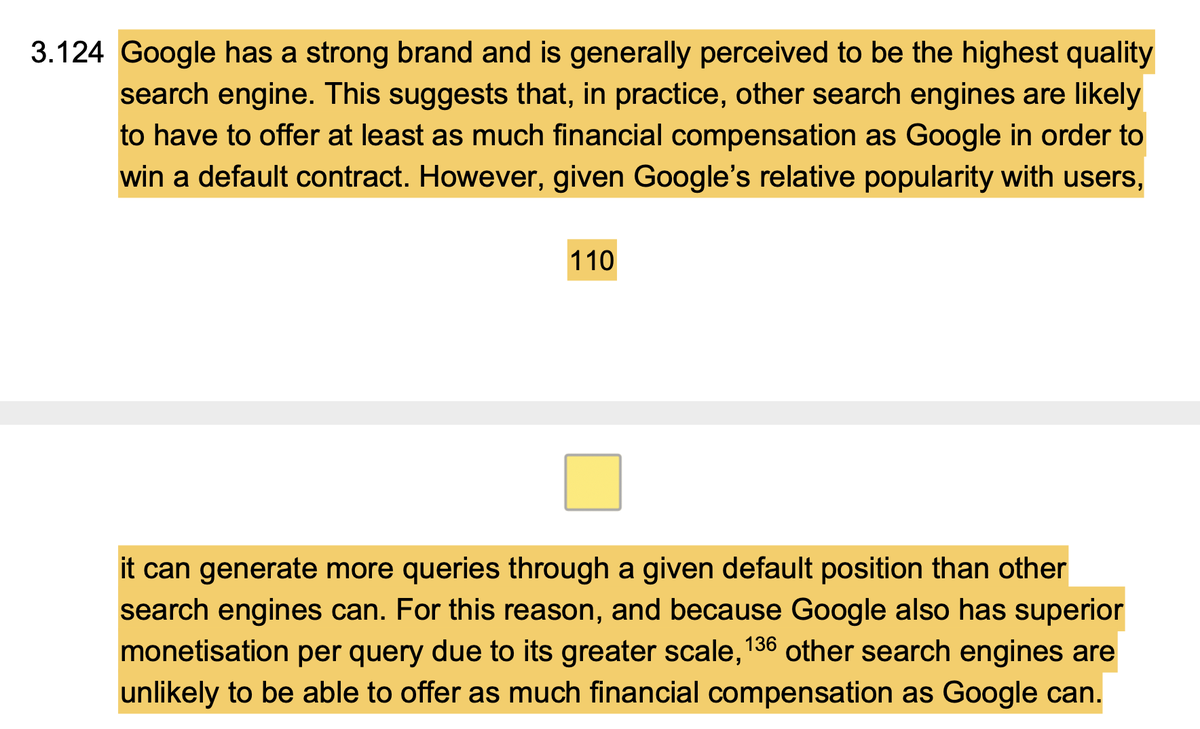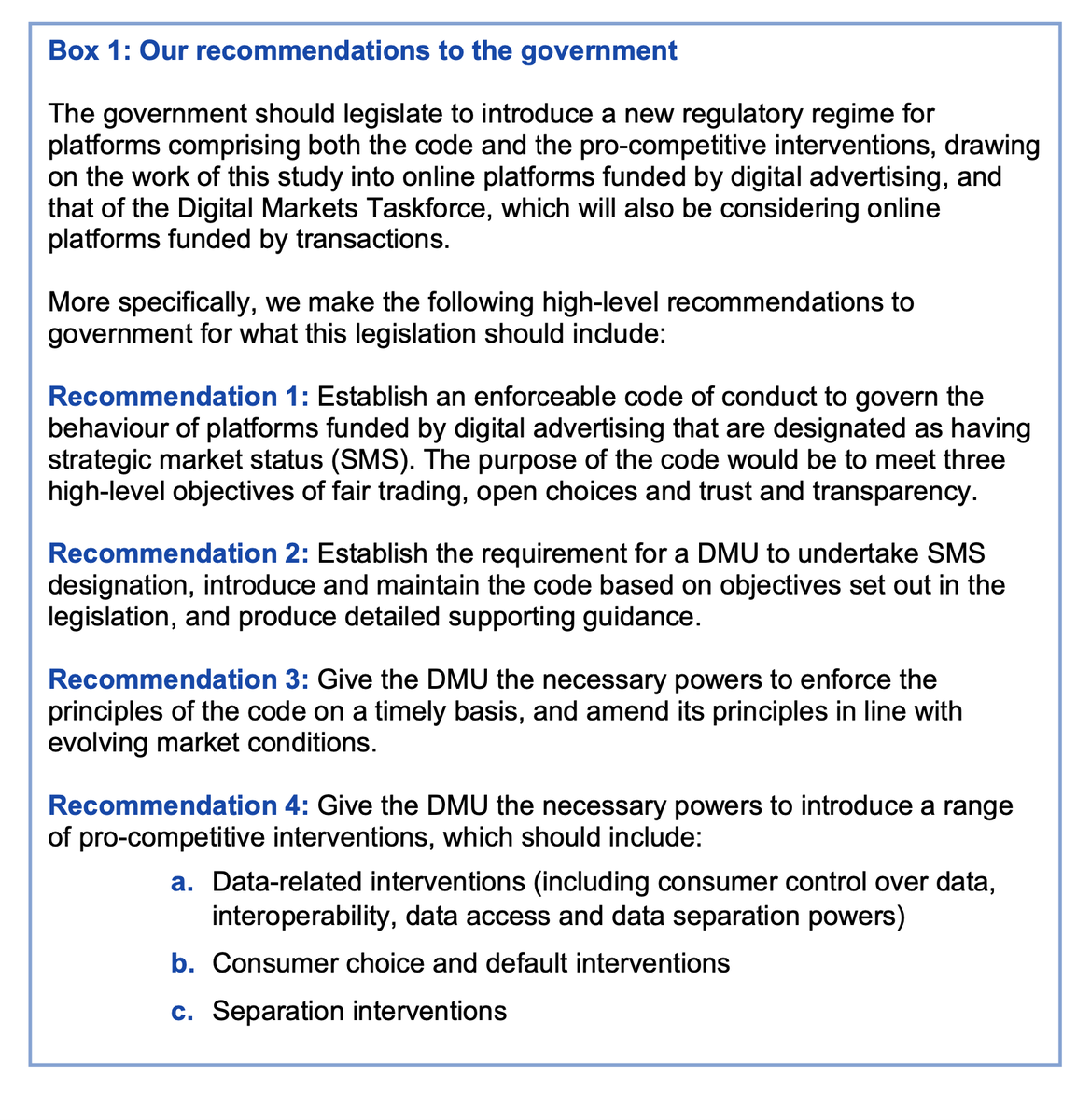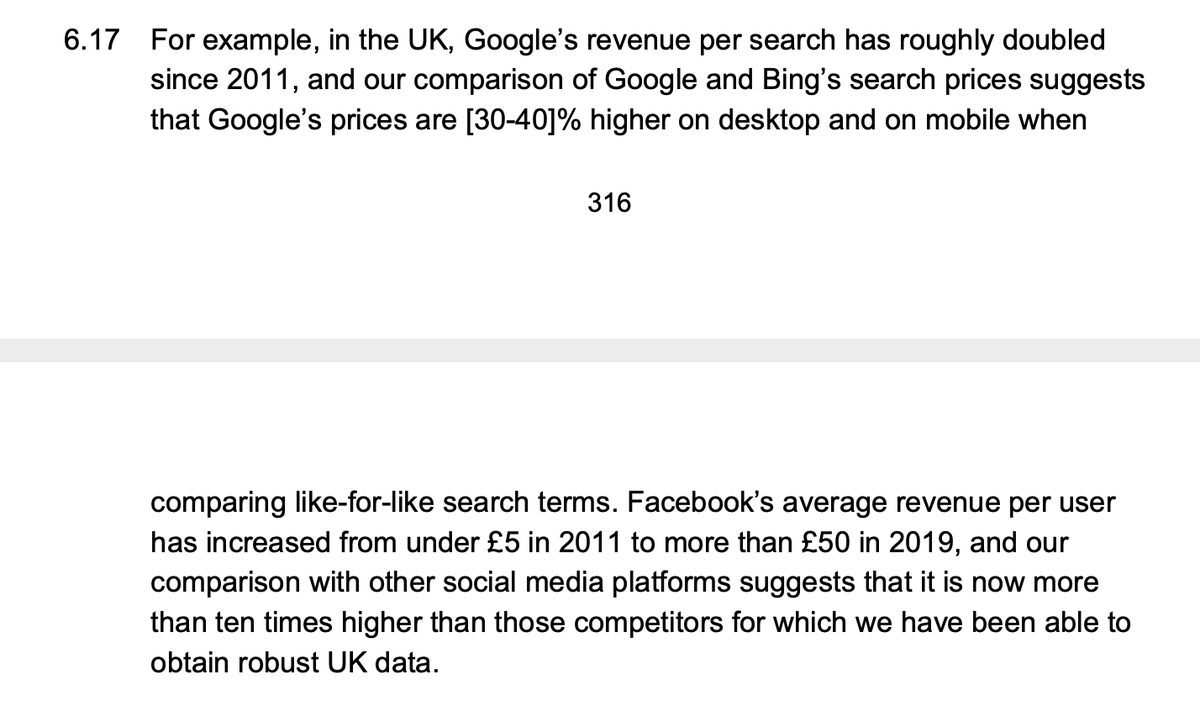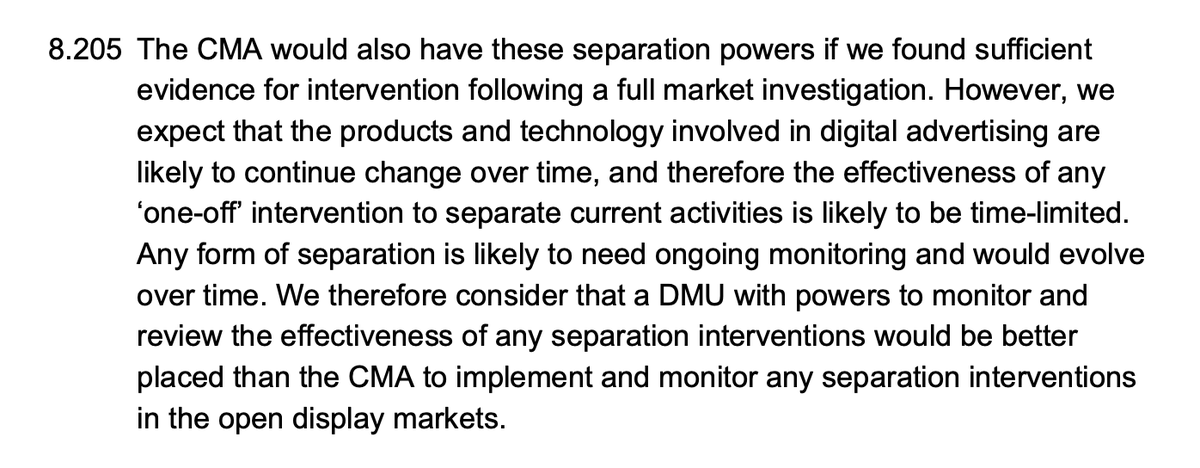My main takeway from the CMA's Digital Ads market study is that it reads like policy-based evidence making. The govt already announced that it was going with the Furman recommendations, and this reads like it worked backwards from those to justify endorsing them.
There's very little economic analysis. The economic analysis it DOES have is embarrassing: looking at profits vs the cost of capital as if you're talking about the water network rather than a market defined by innovation and intangible capital.
There's no consideration of whether Google and Facebook, in expanding access for advertising to SMEs, may have driven *more* competition in consumer products, and virtually no consideration of the costs to advertising businesses (and their consumers) of curbs to targeted ads.
Again and again the CMA writes as if Google Search being a good product is itself anticompetitive. Eg here, where the CMA complains that consumers preferring Google means that other search engines have to pay more for default positions.
It's filled with value judgements about prices being too high, or payments being too low, without any real justification other than the gut feel of the authors.
The recommendations are here. Without going into too much detail here, they would mean a regulator intervening at every level of the online digital advertising market, rewriting rules and contracts as it wanted.
Another remedy proposed is to ban Google from paying to be the default search engine on mobile phones, including Android devices. It ignores the incentives Google has to invest in Android that exist *because* of these requirements. Without them, why bother?
Also, this put into effect will probably mean Bing becoming the default search engine on iPhones, and maybe on other phones too. I'm sure users will be very grateful!
The actual "consumer harms" section is tissue paper-thin. It claims that Google and Facebook's digital ads businesses have harmed innovation on the basis of.... nothing.
It treats the rise in Facebook's revenue per user as evidence of harm to consumer, without considering that users may be using FB more now than in 2011, or advert targeting may have improved. It's laughably weak – anybody should be able to see how crap this analysis is.
These are just a few flash thoughts. I'll have more in the next few days. But this should be really worrying to anyone interested in innovation: the regulator the CMA wants is the sort of thing that would be suitable for the electricity grid, not the internet.
Here it sounds as if the CMA is saying its Digital Markets Unit should have the power to break up digital companies and bypass the MIR process, which currently gives legal protections to businesses involved. If I'm reading right, the CMA would be judge, jury and executioner.
This cannot be right? The idea that an independent regulator should be able to break up companies without the due process and legal protections for those businesses that currently exist is crazy. This is a threat to private property and the rule of law.
Here's a minor conspiracy theory about how we got here: The govt cucked the CMA by announcing it was implementing the Furman Review before this study completed. If the CMA recommended anything else, it would look even more cucked b/c the govt was ignoring it. And here we are.

 Read on Twitter
Read on Twitter